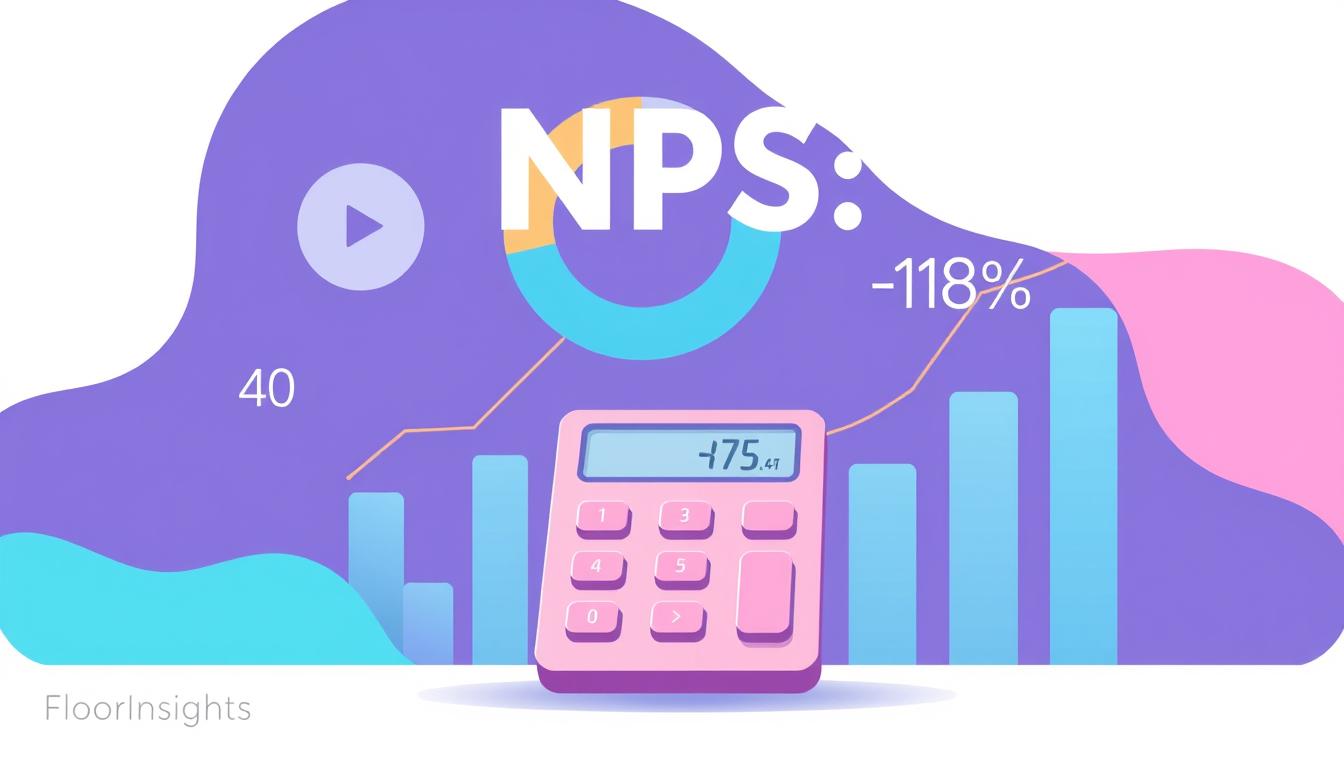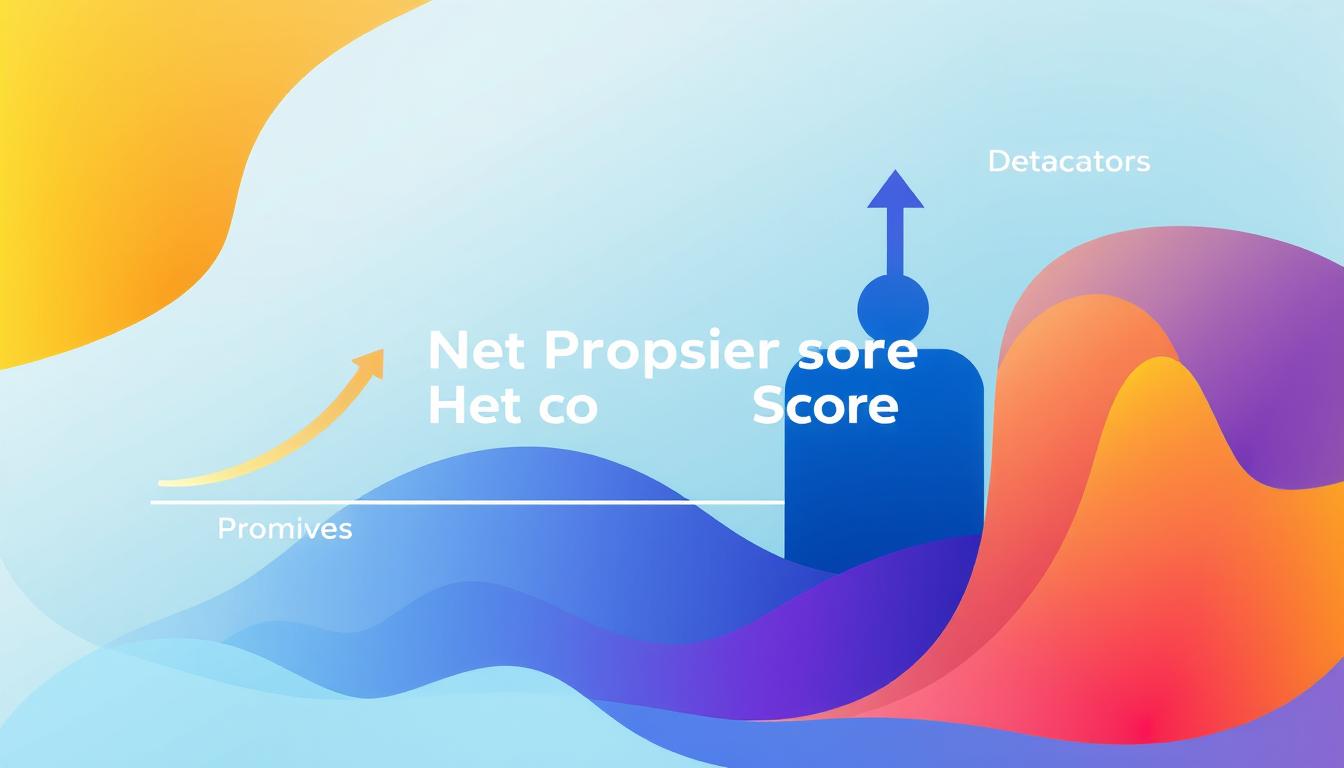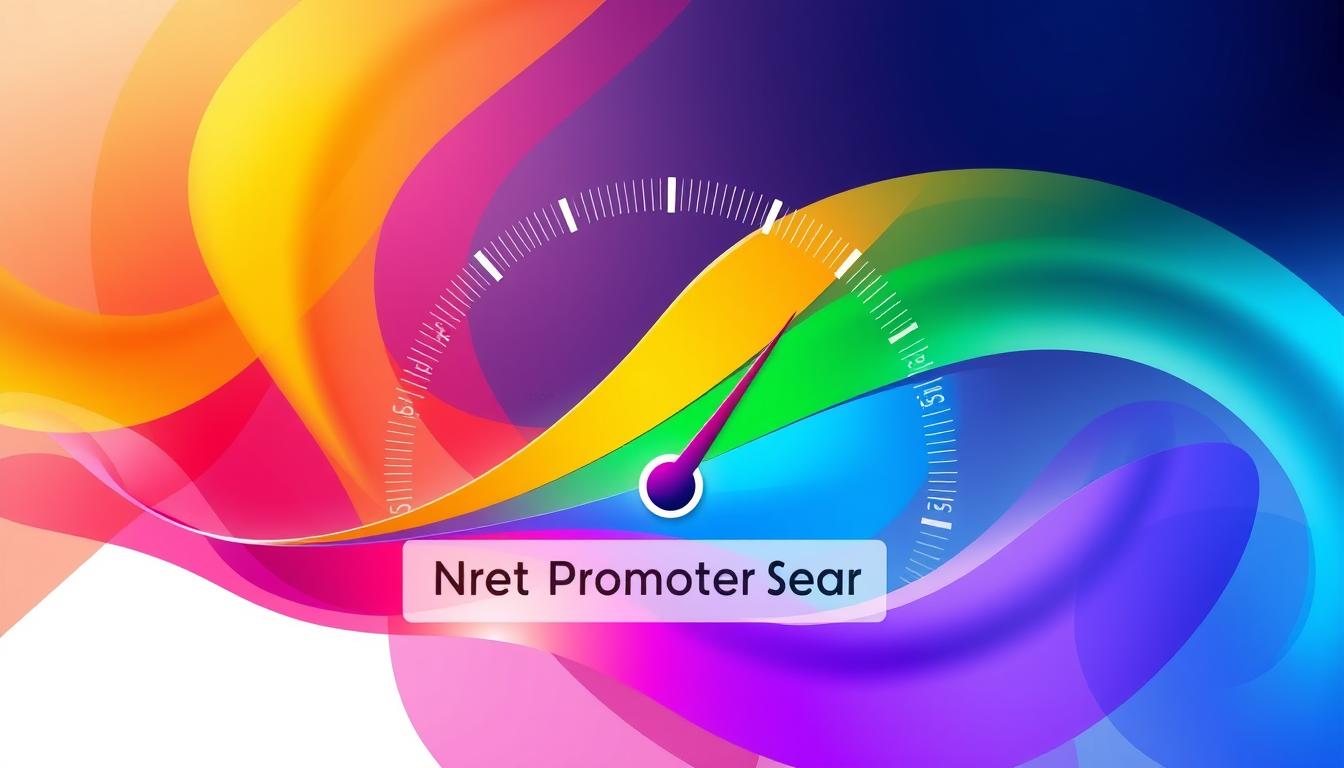In the dynamic business landscape, the relationship between employee engagement and the Net Promoter Score (NPS) has become increasingly crucial. NPS, a widely recognized metric for measuring customer loyalty, is directly influenced by the level of engagement and commitment among a company’s workforce. As we delve into this intricate connection, we’ll uncover how fostering a highly engaged workforce can drive exceptional customer experiences and elevate brand advocacy.
Key Takeaways
- Employee engagement is a pivotal factor in shaping customer loyalty and brand advocacy.
- Engaged employees are more likely to deliver superior customer experiences, leading to higher NPS scores.
- Fostering a positive work environment and encouraging open communication can boost employee engagement.
- Aligning employee engagement with customer experience strategies enhances overall business performance.
- Regularly measuring and improving employee engagement can have a ripple effect on customer loyalty and brand reputation.
Understanding the Net Promoter Score
The Net Promoter Score (NPS) is a widely-used metric that measures customer loyalty and satisfaction. It gauges how likely customers are to recommend a product or service to others, which is a strong indicator of overall customer sentiment and brand advocacy.
What Is the Net Promoter Score?
The NPS is calculated by asking customers a simple question: “On a scale of 0 to 10, how likely are you to recommend this product/service to a friend or colleague?” Based on their response, customers are classified into three categories:
- Promoters (score 9-10): Loyal, enthusiastic customers who are likely to continue using the product or service and refer others.
- Passives (score 7-8): Satisfied but unenthusiastic customers who are vulnerable to competitors.
- Detractors (score 0-6): Unhappy customers who can damage the brand through negative word-of-mouth.
Why Is NPS Crucial for Businesses?
The Net Promoter Score is a powerful metric because it provides valuable insights into customer loyalty, satisfaction, and feedback. A high NPS indicates that a business has a strong base of loyal, enthusiastic customers who are likely to continue using the product or service and refer others. Conversely, a low NPS suggests that the company needs to address customer pain points and improve the overall customer experience.
By monitoring and improving their NPS, businesses can enhance customer retention, drive referrals, and ultimately, boost revenue and profitability. Additionally, the NPS can serve as a benchmark for comparing a company’s performance against industry peers and identifying areas for improvement.
Understanding and leveraging the Net Promoter Score is a crucial step for businesses looking to build a strong, loyal customer base and drive sustainable growth.
Employee Engagement: The Key to Boosting NPS
At the heart of a successful customer experience lies a highly engaged workforce. When employees are passionate about their work and empowered to deliver exceptional service, it can have a profound impact on a company’s Net Promoter Score (NPS). By fostering a culture of employee engagement, organizations can unlock the true potential of their workforce, driving customer loyalty and advocacy.
Engaged employees are more likely to go the extra mile for customers, understanding their needs and providing personalized solutions. This level of dedication and commitment can significantly contribute to improving a company’s NPS, as satisfied customers are more likely to become loyal advocates, recommending the brand to their friends and family.
Moreover, engaged employees are often more attuned to customer feedback, actively seeking ways to enhance the overall customer experience. By harnessing the insights and ideas of their workforce, businesses can make informed decisions to address pain points and continuously improve their offerings, further boosting customer satisfaction and loyalty.
Ultimately, the link between employee engagement and NPS is undeniable. By investing in the well-being and development of their workforce, organizations can create a synergistic relationship between their internal and external stakeholders, leading to a more positive and fulfilling customer experience.
| Metric | Impact on Customer Loyalty |
|---|---|
| Employee Engagement | High levels of employee engagement are directly correlated with improved customer satisfaction, leading to increased customer loyalty and a higher Net Promoter Score. |
| Net Promoter Score (NPS) | NPS is a widely used metric that measures customer loyalty and the likelihood of customers to recommend a company’s products or services to others. A high NPS indicates a strong customer base and brand advocacy. |
“Engaged employees are the foundation of a successful customer experience. When your team is motivated and empowered, it reflects in the level of service they provide, ultimately boosting your Net Promoter Score.”
Fostering a Culture of Engagement
To drive employee engagement and enhance the overall customer experience, it’s essential to foster a positive work culture. By creating an environment that empowers and motivates employees, we can unlock their full potential and enable them to deliver exceptional service to customers.
Creating a Positive Work Environment
A positive work environment is the foundation for engaged employees. This can be achieved through various initiatives, such as:
- Implementing flexible work arrangements that cater to work-life balance
- Providing opportunities for professional development and growth
- Recognizing and rewarding top performers to boost morale
- Encouraging team-building activities and social events
Encouraging Open Communication
Effective communication is the lifeblood of a thriving work culture. By encouraging open dialogue and feedback, we can foster a sense of transparency and trust among employees. This, in turn, can lead to improved collaboration, problem-solving, and ultimately, a better customer experience.
Some strategies to promote open communication include:
- Conducting regular one-on-one meetings between managers and employees
- Implementing a suggestion box or online feedback system
- Organizing town hall meetings to address company-wide concerns
- Encouraging cross-departmental collaboration and knowledge sharing
By creating a positive work environment and nurturing open communication, we can build a culture of employee engagement that directly translates to an enhanced customer experience and improved Net Promoter Score.
“Engaged employees are the heart and soul of a thriving business. When we invest in their well-being and empower them to succeed, the ripple effects are felt throughout the entire organization, including our valued customers.”
Net Promoter Score: The Ultimate Customer Loyalty Metric
The Net Promoter Score (NPS) is a powerful metric that provides invaluable insights into customer loyalty and satisfaction. By measuring the likelihood of customers to recommend a product or service to others, NPS offers a window into the overall health of a business’s customer relationships.
At its core, NPS is a straightforward yet insightful metric. Customers are asked a simple question: “On a scale of 0 to 10, how likely are you to recommend our product/service to a friend or colleague?” Based on their responses, customers are categorized as Promoters (scores of 9-10), Passives (scores of 7-8), or Detractors (scores of 0-6).
| Customer Type | Score Range | Characteristics |
|---|---|---|
| Promoters | 9-10 | Loyal, enthusiastic customers who are likely to refer your business to others |
| Passives | 7-8 | Satisfied but unenthusiastic customers who are unlikely to refer your business |
| Detractors | 0-6 | Unhappy customers who may actively discourage others from using your products or services |
The Net Promoter Score is calculated by subtracting the percentage of Detractors from the percentage of Promoters. This simple yet powerful metric provides a clear and actionable measure of customer loyalty, enabling businesses to identify areas for improvement and focus their efforts on enhancing the customer experience.
By understanding and leveraging the Net Promoter Score, businesses can unlock the key to long-term customer loyalty and sustainable growth. It is a critical metric for any organization seeking to build a strong, customer-centric brand and drive lasting success.

“The Net Promoter Score is the one number you need to grow.” – Fred Reichheld, inventor of the Net Promoter Score
Aligning Employee Engagement with Customer Experience
At the heart of delivering exceptional customer service lies the engagement of our employees. When our team members are fully invested in their work and empowered to make a difference, they can create seamless and memorable experiences for our customers. This direct correlation between employee engagement and customer satisfaction is crucial for boosting our Net Promoter Score (NPS) – a key metric that measures customer loyalty and advocacy.
Empowering Employees to Deliver Exceptional Service
To align employee engagement with customer experience, we must first empower our team members to take ownership of their roles and responsibilities. This involves providing them with the necessary training, resources, and autonomy to make informed decisions that prioritize customer needs. By fostering a culture of empowerment, we can cultivate a workforce that is passionate about delivering exceptional customer service and driving customer satisfaction.
Moreover, open and transparent communication channels are essential in this process. When employees feel heard, valued, and supported, they are more likely to be engaged and motivated to go the extra mile for our customers. Regular feedback sessions, collaborative problem-solving, and recognition of top performers can all contribute to building a highly engaged and customer-centric workforce.
| Factors Influencing Employee Engagement | Impact on Customer Experience |
|---|
- Meaningful work
- Autonomy and decision-making authority
- Effective communication and feedback
- Professional development opportunities
- Recognition and rewards
- Improved customer service quality
- Enhanced customer satisfaction
- Increased customer loyalty and advocacy
- Positive impact on customer experience
- Boost in Net Promoter Score (NPS)
By aligning our efforts to foster employee engagement and deliver exceptional customer experience, we can unlock the full potential of our workforce and drive sustained growth for our business. This strategic approach not only benefits our customers but also empowers our team members to thrive and contribute to our shared success.
“Engaged employees are the key to unlocking exceptional customer experiences. When our team members feel empowered and motivated, they can truly make a difference in the lives of our customers.”
Measuring and Improving Employee Engagement
Fostering a highly engaged workforce is crucial for driving customer loyalty and boosting the Net Promoter Score (NPS). To achieve this, businesses must prioritize regular surveys and feedback sessions to gauge employee sentiment and identify areas for improvement.
Conducting Regular Surveys and Feedback Sessions
Regular employee surveys can provide valuable insights into the level of employee engagement within the organization. These surveys should cover a range of factors, including job satisfaction, work-life balance, career development opportunities, and the overall work environment. By analyzing the survey data, businesses can pinpoint specific areas that require attention and implement targeted initiatives to enhance employee engagement.
In addition to surveys, businesses should also encourage open and constructive feedback sessions. These sessions create a platform for employees to share their thoughts, concerns, and ideas directly with management. This open communication fosters a culture of trust and collaboration, enabling organizations to address employee pain points and implement meaningful changes.
Engaged employees are more likely to go the extra mile for their customers, leading to a better customer experience and higher NPS scores.
By actively listening to employee feedback and implementing relevant strategies, businesses can unlock the full potential of their workforce. Empowered and engaged employees are more likely to deliver exceptional customer service, ultimately driving improvements in the Net Promoter Score and strengthening the overall customer experience.
The Ripple Effect of Engaged Employees
When employees are deeply engaged in their work, the positive impact ripples throughout the organization. Highly motivated and empowered employees are not only more productive, but they also excel at providing exceptional customer service. This, in turn, leads to increased customer satisfaction, loyalty, and higher Net Promoter Scores (NPS) – a key metric that measures a customer’s willingness to recommend a company’s products or services.
Engaged employees understand the importance of delivering a remarkable customer experience. They are driven to go the extra mile, anticipate customer needs, and resolve issues promptly. This level of dedication and commitment is palpable to customers, fostering a sense of trust and loyalty that is invaluable for any business.
“Engaged employees are the heart of a thriving business. Their passion and dedication to providing exceptional customer service create a ripple effect that strengthens customer loyalty and drives business growth.”
By cultivating a culture of employee engagement, organizations can unlock a powerful cycle of success. Engaged employees deliver superior customer experience, which leads to higher customer loyalty and increased Net Promoter Scores. This positive feedback loop reinforces the value of an engaged workforce, creating a sustainable competitive advantage.
| Metric | Engaged Employees | Disengaged Employees |
|---|---|---|
| Customer Loyalty | 79% | 33% |
| Net Promoter Score | +50 | -23 |
| Productivity | 21% higher | 18% lower |
The data clearly highlights the significant impact that engaged employees can have on key business metrics. By nurturing a culture of engagement, organizations can unlock the full potential of their workforce and drive sustainable growth through exceptional customer experiences.
Strategies for Enhancing Employee Engagement
Fostering a highly engaged workforce is crucial for boosting your company’s Net Promoter Score (NPS) and delivering an exceptional customer experience. To achieve this, organizations must prioritize strategies that provide growth opportunities, career development, and meaningful recognition for top performers.
Providing Growth Opportunities and Career Development
Investing in the professional growth and development of your employees sends a powerful message – that you value their contributions and are committed to their long-term success. Offer opportunities for skill-building workshops, mentorship programs, and job rotation to help your team members expand their expertise and take on new challenges.
- Implement a robust training and development curriculum
- Encourage employees to pursue certifications or advanced degrees
- Provide stretch assignments and cross-functional projects
Recognizing and Rewarding Top Performers
Effective employee recognition is a cornerstone of engagement. Showcase your appreciation for high-performing team members through a variety of initiatives, from public acknowledgments and monetary bonuses to exclusive perks and advancement opportunities.
| Recognition Strategies | Benefits |
|---|---|
| Employee of the Month/Year awards | Boosts morale and motivation |
| Profit-sharing or performance-based bonuses | Reinforces the value of top contributions |
| Promotions and leadership roles | Provides career advancement opportunities |
By implementing these strategies, you can foster a work environment that cultivates employee engagement, empowers your team to deliver exceptional customer experiences, and ultimately drives improvements in your Net Promoter Score.
The Net Promoter Score and Brand Advocacy
The Net Promoter Score (NPS) has emerged as a powerful metric for measuring customer loyalty and advocacy. A high NPS, driven by a customer-centric approach and a highly engaged workforce, can lead to increased brand advocacy and positive word-of-mouth marketing. This, in turn, can strengthen the company’s reputation and drive long-term business success.
When customers are satisfied with the products and services they receive, they become more inclined to recommend the brand to their friends, family, and colleagues. This organic brand advocacy creates a ripple effect, attracting new customers and reinforcing the company’s position in the market. By fostering a culture of employee engagement, we can empower our workforce to deliver exceptional customer experiences, ultimately fueling this cycle of brand advocacy and growth.
As we continue to prioritize the Net Promoter Score and its impact on our business, we must also recognize the vital role that employee engagement plays in the equation. By investing in our people, cultivating a positive work environment, and providing opportunities for growth and development, we can build a team of passionate brand ambassadors who will champion our offerings and help us to expand our reach and influence within the industry.
FAQ
What is the Net Promoter Score (NPS)?
The Net Promoter Score (NPS) is a widely used metric that measures customer loyalty and sentiment towards a brand or company. It classifies customers into three categories: Promoters, Passives, and Detractors, based on their likelihood to recommend the product or service to others.
Why is NPS crucial for businesses?
NPS is a crucial metric for businesses because it provides valuable insights into customer loyalty and customer experience. A high NPS indicates that a company has a strong base of loyal and enthusiastic customers who are likely to promote the brand, while a low NPS suggests areas for improvement in the customer experience.
How can employee engagement impact a company’s NPS?
Employee engagement has a direct impact on a company’s Net Promoter Score. Highly engaged employees who are empowered to deliver exceptional customer service are more likely to contribute to a positive customer experience, leading to higher customer satisfaction and a stronger likelihood of customer recommendations, ultimately boosting the company’s NPS.
What strategies can companies use to foster a culture of employee engagement?
To foster a culture of employee engagement, companies can focus on creating a positive work environment, encouraging open communication, providing growth opportunities and career development, and recognizing and rewarding top performers. These initiatives help to motivate and empower employees, enabling them to deliver exceptional customer experiences that drive improvements in the Net Promoter Score.
How can measuring and improving employee engagement help enhance the customer experience and NPS?
Regularly measuring and improving employee engagement through surveys, feedback sessions, and targeted initiatives can have a direct impact on the customer experience and the Net Promoter Score. By identifying areas for improvement in employee engagement, companies can implement strategies to enhance the customer-facing capabilities of their workforce, leading to higher customer satisfaction and increased brand advocacy, as reflected in the NPS.
What is the connection between NPS and brand advocacy?
A high Net Promoter Score is often indicative of strong brand advocacy, as it suggests that a company has a large base of loyal and enthusiastic customers who are willing to recommend the brand to others. This positive word-of-mouth marketing can further strengthen the company’s reputation and drive long-term business success.
Related Posts
- How to Measure NPS Across Online and Offline Retail Channels – NPS in Retail
- The Role of Onboarding in Shaping NPS Scores – NPS and Customer Onboarding
- The Ethical Considerations of Collecting NPS Data – NPS Ethics and Data Privacy
- How AI is Enhancing Customer Feedback Through NPS Integration – NPS and Customer Feedback Systems






